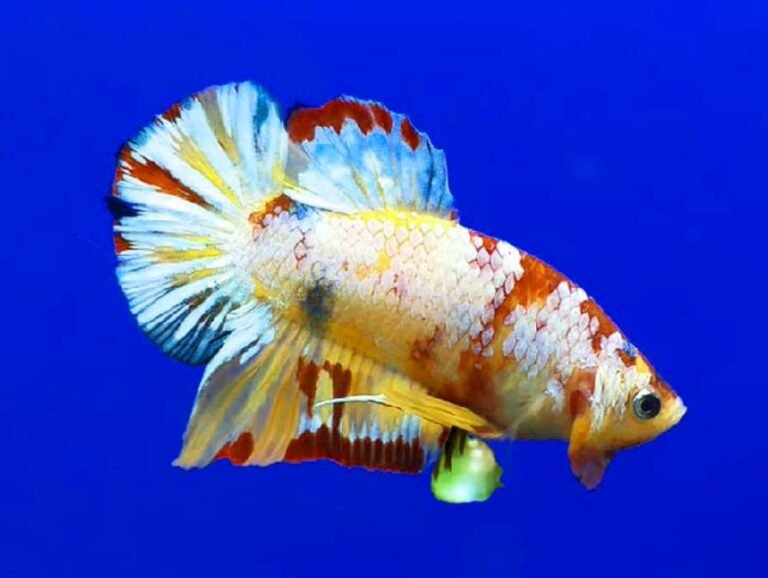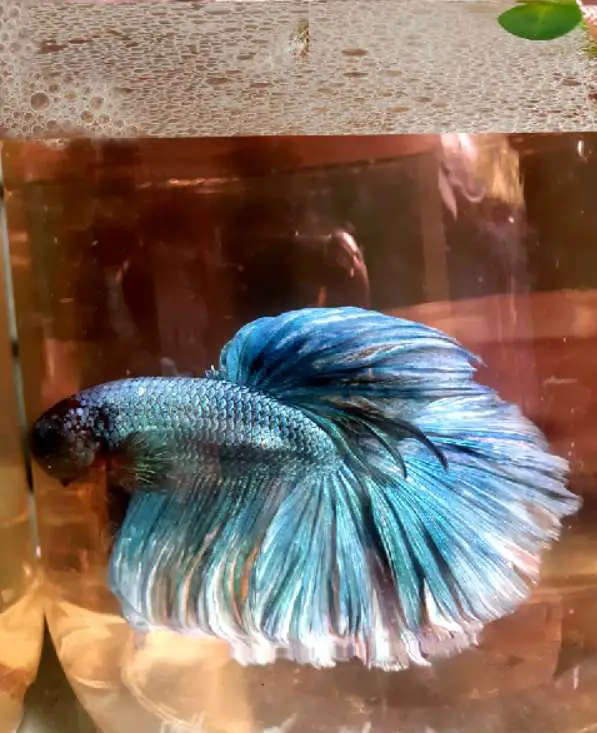4 Reasons For Shed Skin-Do Betta Fish Shed Their Skin?
Shed skin is not a general thing among betta fish. It can be concerning when you notice your Betta fish (Siamese fighting) shedding or molting its scales or fins, as they typically do not lose scales quickly. If a betta fish sheds more than 2-3 scales per day, it often indicates an underlying health issue or that something in their aquarium environment caused their scales to fall off.
Healthy betta fish will shed 1-2 scales daily to allow new scales to grow in a natural regeneration process. On average, a betta fish has 30-40 scales, and it takes around 2 weeks to shed and regrow all their scales. This natural shedding allows betta fish to adapt their scales to seasonal temperature changes in their tropical climate. However, excessive shedding beyond 2-3 scales daily may signal potential health problems like parasites, fungal infections, poor water quality, or physical injury.
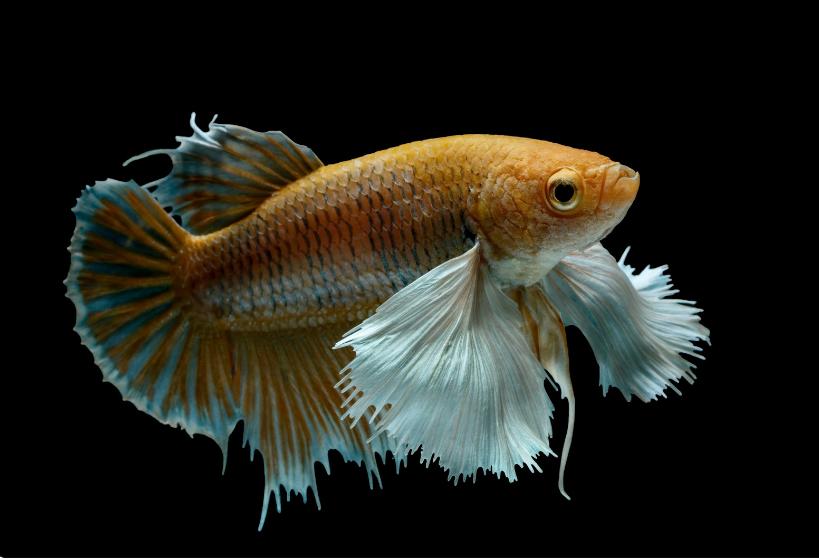
To prevent excessive shedding, keep the water temperature between 75-80°F (23.5 -26.5 °C), perform regular partial water changes, quarantine new fish, and watch for signs of disease. Addressing environmental stressors and treating underlying illnesses can help minimize unhealthy shedding episodes in betta fish.
Table of Contents
- Is It Normal for Betta Fish to Shed?
- Why Do Betta Fish Shed?
- Betta Diseases and Infections
- Do Bettas Grow Back Their Shedded Scales?
- Conclusion
Is It Normal for Betta Fish to Shed?
No. Healthy betta fish do generally not shed skin or lose their scales. Unlike reptiles, betta fish are cold-blooded and do not need to shed their skin to allow new growth routinely.
Betta fish scales and skin grow continuously with the fish rather than being shed and regenerated periodically. At stable water temperatures between 75-80°F, betta fish do not undergo natural molting cycles or regular scale shedding.
So, if you notice your betta fish is missing scales or appears to be shedding, something is likely wrong and requires attention. Excessive scale loss indicates an underlying issue like “fungal or bacterial infections, parasites, poor water quality, or physical damage” to scales.
If shedding is observed, examine your betta fish closely for signs of disease and treat any infections appropriately. Address potential causes like stress, malnutrition, or water issues. Unhealthy shedding in bettas should not be considered normal and requires action to resolve.
Why Do Betta Fish Shed?
Betta fish owners are often puzzled when they notice their fish shedding scales. There are several potential reasons for betta fish losing scales.
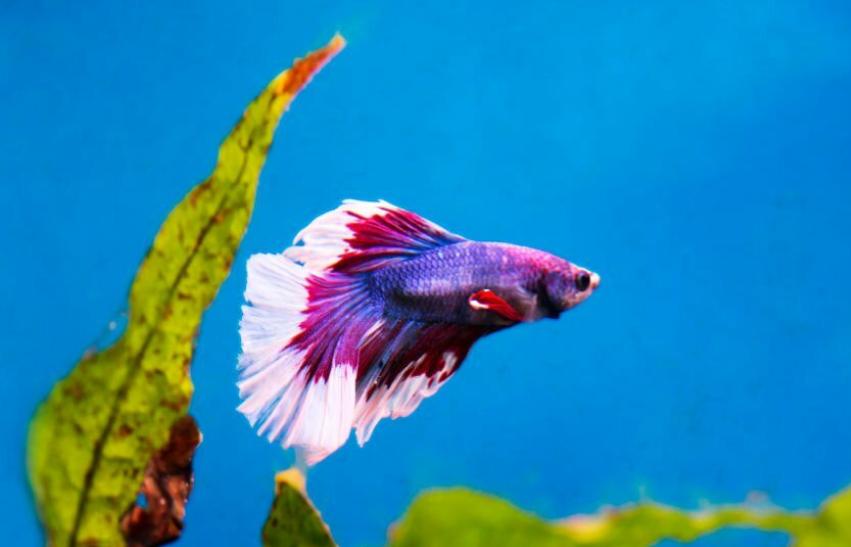
Injury to the Body
One common trigger for healthy bettas shedding scales is physical injury.
1. During breeding, the male betta aggressively pursues the female in a mating ritual. Friendly nipping and flaring of gills is normal but can dislodge 1-2 scales. Male bettas have small teeth used in the wild to catch insects, sometimes leading to minor injuries.
2. Betta fish are territorial and aggressive toward other bettas. Housing two male bettas together often causes fighting as they defend their territory. These fights lead to bite wounds that damage scales. It’s recommended to house male bettas separately with peaceful tank mates like ghost shrimp.
3. Betta fish are not agile swimmers, so strong water flow can be tossed around an aquarium. Colliding with decorations and tank walls often dislodges scales. Keep water flow gentle for long-finned betta varieties.
Parasites
Parasites like ich can attach to scales and skin, making bettas prone to losing scales from scratching and as parasites detach. Treat with anti-parasitic medication.
Poor Water Quality
Ammonia and nitrite buildup from insufficient tank cleaning irritates the skin and causes excess shedding. Do 25% (1/4) weekly water changes and test water parameters.
Fungal Infections
Fungal infections like saprolegnia attack tissue, leading to decay and scale loss. Treat with antifungal medications and improve water quality. Here are some more details on diseases and infections that can cause betta fish to shed scales:
Betta Diseases and Infections
Betta fish are prone to bacterial and fungal diseases common in aquarium fish that can cause scales to detach.
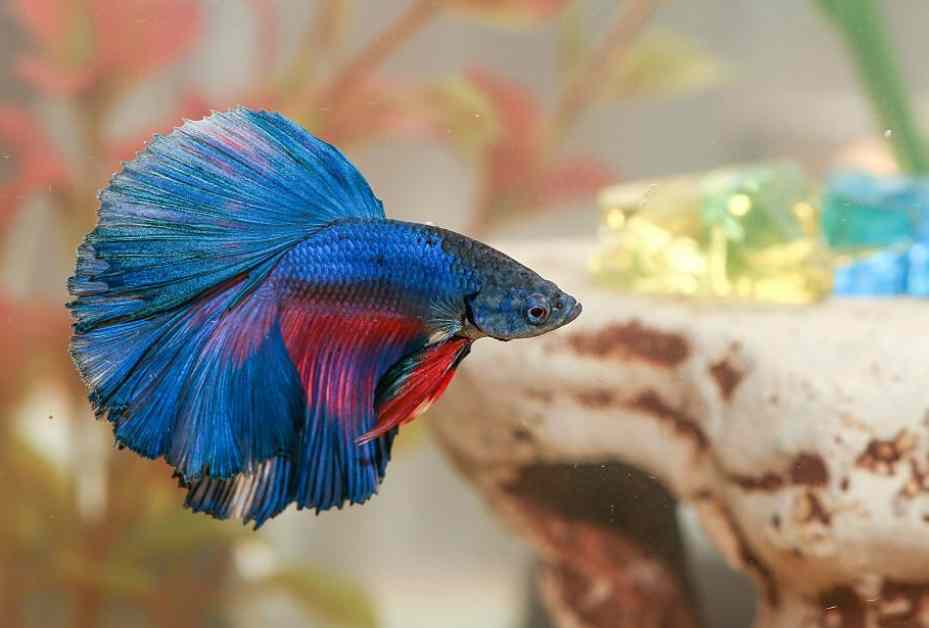
Bacterial infections like fin rot can decay tissue between rays in fins, leading to erosion and scale loss. Treat with antibiotics like tetracycline. Fungal infections such as saprolegnia attack tissue, tail, and scales. Infected fish scrape against objects seeking relief dislodging scales. Use antifungal medications.
Parasitic infections like ich (white spot disease) make fish scratch against surfaces due to discomfort. This can detach scales already weakened by the parasite. Treat with anti-parasitic meds. Septicemia, a systemic bacterial infection, causes lethargy, reddened fins/body, and scale shedding. Treat with broad-spectrum antibiotics.
Poor water quality stresses fish, allowing pathogens to establish. Ammonia and nitrite burns make fish rub against objects, losing scales. Do frequent water testing and changes. Carefully observe bettas for signs of disease like “spots, erosion, or color change.” Quarantine new fish, Improve water quality, and treat any infections promptly to resolve scale shedding.
www.tinyfishtank.com
Do Bettas Grow Back Their Shedded Scales?
Yes. Betta fish can regrow shredded scales over time. However, severe underlying illnesses may prevent lost scales from fully recovering.

There is no set timeframe for scale regrowth, and it can take anywhere from a few weeks to several months depending on factors like,
- Several scales were lost.
- The overall health of the betta
- Environmental conditions
On average, a betta fish takes around 2-4 weeks to regrow all 30-40 scales under good conditions. Stressed fish tend to regrow scales much slower.
To help scales regrow,
- Maintain excellent water quality with weekly partial water changes. Test for ammonia, nitrites, and nitrates.
- Make sure tankmates are peaceful to avoid fighting injuries. Good options include ghost shrimp or snails.
- promptly Treat parasites, fungal infections, or diseases with appropriate medications.
- Provide a nutritious diet with live or frozen foods to support healing.
- Reduce stress by stabilizing water temperature and pH and limiting tank disturbances.
With proper care, most minor scale shedding in bettas will resolve as new scales grow in place of those lost. Monitor closely for recurring shedding issues.
Conclusion
In summary, betta fish do not normally shed their scales spontaneously without an underlying cause. Sudden or excessive scale loss in a betta is a warning sign requiring prompt attention.
First, observe tankmates for signs of fighting, which may have caused injuries leading to shedding separate aggressive fish. Also, check for parasites like ich or fungal and bacterial diseases. Treat any illness found accordingly.
Ensure water quality is pristine through regular testing and partial water changes to lower stress. Check for abrasive decor harming fish. Scales shed for health reasons will often regrow within 2-4 weeks, given excellent care.
While minor scale loss is common, significant or recurring shedding indicates environmental issues or disease. Early intervention can save your betta’s life. Unhealthy shedding is abnormal in bettas and signals deteriorating conditions requiring immediate action by the aquarist. With proper handling, most scale shedding can be reversed.



